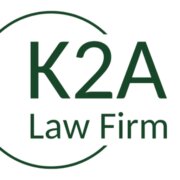Best Renewable & Alternative Energy Lawyers in Thessaloniki
Share your needs with us, get contacted by law firms.
Free. Takes 2 min.
List of the best lawyers in Thessaloniki, Greece
About Renewable & Alternative Energy Law in Thessaloniki, Greece
Thessaloniki, the second largest city in Greece, is increasingly becoming a focal point for renewable and alternative energy projects. Driven by both national and European Union policies to combat climate change and promote sustainable energy, the region offers opportunities for investment in solar, wind, biomass, and other alternative energy sources. Legal frameworks at the local, regional, and national level impact how individuals, businesses, and organizations can generate, distribute, and consume renewable energy. As the energy landscape evolves, understanding the rules and regulations that govern these activities in Thessaloniki is essential for anyone interested in this sector.
Why You May Need a Lawyer
Navigating renewable and alternative energy law can be complex in Thessaloniki due to overlapping regulatory frameworks and frequent legislative updates. Individuals and organizations might seek legal assistance in the following common situations:
- Obtaining permits and licenses for setting up renewable energy projects such as solar farms or wind turbines
- Understanding compliance requirements for energy efficiency in residential or commercial real estate projects
- Negotiating Power Purchase Agreements or energy supply contracts with providers or grid operators
- Securing funding or incentives offered by Greek or European authorities for renewable projects
- Handling disputes related to land use, access rights, or project development
- Dealing with environmental impact assessments or regulatory approvals
- Assisting foreign investors in entering the Greek renewable energy market
- Advising on intellectual property and technology licensing in the renewable sector
Local Laws Overview
The regulatory framework for renewable and alternative energy in Thessaloniki is primarily guided by national Greek legislation, harmonized with EU directives. Key aspects to consider include:
- Licensing and Permits: All renewable energy installations require certain permits, which may include environmental, urban planning, and grid connection approvals.
- Feed-in Tariffs and Incentives: The Greek government offers incentives and tariff structures to support investment in renewable energy projects.
- Grid Access: Regulations dictate how producers connect to the national grid, with priorities given to renewable projects.
- Zoning and Land Use: Local regulations influence where renewable energy installations can be placed, considering both urban and rural zones in Thessaloniki's surrounding areas.
- Environmental Impact: Strict EU and Greek frameworks require environmental assessments for most significant projects.
- Community Participation: Recent laws encourage community and cooperative energy projects, providing unique legal structures.
- Energy Efficiency: Building codes now have strict standards for energy efficiency in new and renovated structures.
Frequently Asked Questions
What types of renewable and alternative energy projects are common in Thessaloniki?
Solar photovoltaic installations, small wind parks, biomass plants, and energy efficiency upgrades in buildings are among the most common renewable energy developments in Thessaloniki and the surrounding region.
What permits are needed to install solar panels on my home or business?
You generally need urban planning permission and a technical connection agreement from the Hellenic Electricity Distribution Network Operator (HEDNO) for installations above certain capacities. Small-scale rooftop systems may be exempt from some permit requirements.
Are there financial incentives for renewable energy projects in Thessaloniki?
Yes, both the Greek government and the European Union offer grants, subsidies, and favorable feed-in tariffs to encourage investment in renewable and alternative energy.
Can foreign investors develop renewable energy projects in Thessaloniki?
Yes, Greece encourages foreign investment in renewable energy. However, investors must comply with local laws, licensing requirements, and foreign investment regulations.
Who regulates renewable energy projects in Thessaloniki?
The main regulatory bodies are the Regulatory Authority for Energy (RAE), the Ministry of Environment and Energy, and local authorities for planning and permits.
What are the typical environmental requirements for renewable energy projects?
Most projects require a detailed environmental impact assessment, particularly for large-scale developments. Compliance with both EU and Greek environmental protection rules is mandatory.
How long does it take to get approval for a renewable energy project?
The timeline can vary greatly depending on the size and type of project, but it often takes several months to a year or longer to navigate all permitting and regulatory steps.
What are the main risks involved in renewable energy development?
Legal risks include changing regulations, permitting delays, disputes over land, grid connection challenges, and environmental compliance issues.
Can individuals or communities form cooperatives to produce renewable energy?
Yes, recent Greek legislation supports the formation of energy cooperatives, allowing groups to collectively develop and manage renewable projects.
How can a lawyer assist with renewable energy projects?
A lawyer helps clients understand regulations, secure permits, negotiate contracts, resolve disputes, ensure regulatory compliance, and access incentives for their renewable energy projects.
Additional Resources
If you are seeking further information or assistance regarding renewable and alternative energy in Thessaloniki, you may find the following resources useful:
- Regulatory Authority for Energy (RAE)
- Ministry of Environment and Energy (Υπουργείο Περιβάλλοντος και Ενέργειας)
- Hellenic Electricity Distribution Network Operator (HEDNO)
- Centre for Renewable Energy Sources and Saving (CRES)
- Municipality of Thessaloniki Energy and Environment Department
- Greek Solar Industry Association (HELAPCO)
- Chamber of Commerce and Industry of Thessaloniki
Next Steps
If you are considering launching a renewable or alternative energy project in Thessaloniki or need legal advice on related issues, the following steps can help guide you:
- Clearly define your project goals and gather supporting documents
- Research the specific permits and approvals required for your project size and type
- Contact relevant governmental bodies for preliminary information
- Consult a legal professional specialized in renewable and alternative energy law to assess your case
- Prepare and submit the necessary applications and documentation
- Stay informed about evolving regulations and incentive programs
- Seek additional support from local organizations or business chambers as needed
A lawyer with knowledge of Thessaloniki's legal and regulatory landscape can save you time, minimize risks, and improve the success of your renewable or alternative energy venture.
Lawzana helps you find the best lawyers and law firms in Thessaloniki through a curated and pre-screened list of qualified legal professionals. Our platform offers rankings and detailed profiles of attorneys and law firms, allowing you to compare based on practice areas, including Renewable & Alternative Energy, experience, and client feedback.
Each profile includes a description of the firm's areas of practice, client reviews, team members and partners, year of establishment, spoken languages, office locations, contact information, social media presence, and any published articles or resources. Most firms on our platform speak English and are experienced in both local and international legal matters.
Get a quote from top-rated law firms in Thessaloniki, Greece — quickly, securely, and without unnecessary hassle.
Disclaimer:
The information provided on this page is for general informational purposes only and does not constitute legal advice. While we strive to ensure the accuracy and relevance of the content, legal information may change over time, and interpretations of the law can vary. You should always consult with a qualified legal professional for advice specific to your situation.
We disclaim all liability for actions taken or not taken based on the content of this page. If you believe any information is incorrect or outdated, please contact us, and we will review and update it where appropriate.

















